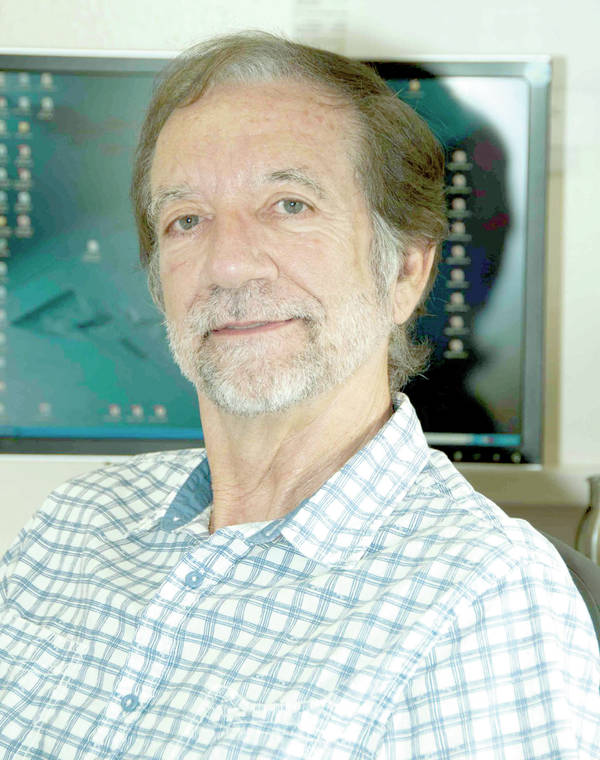Jeffrey Polovina, one of the foremost experts when it comes to the ocean’s response to a changing climate, will be the featured speaker when Environment Hawaii Inc. has its annual benefit dinner Nov. 8.
The dinner is slated for 5:30 p.m. at ‘Imiloa Astronomy Center in Hilo. Live music will be provided by JazzX2. A silent auction and cash bar will also be available.
Reservations are $75 per person and can be made by calling 934-0115. The cost includes a $35 donation to Environment Hawaii. Make reservations by Nov. 5.
Until his recent retirement, Polovina was for years the senior scientist and chief of the Ecosystem and Oceanography Division of the Pacific Islands Fisheries Science Center, an agency of the National Oceanic and Atmospheric Administration.
Among other things, Polovina will discuss the large-scale ocean and atmospheric changes that seem to be driving the 2019 heat wave, experienced not just in Hawaii but elsewhere in the Northern Hemisphere.
“There’s a perception that temperature will slowly and gradually increase over time, but the climate system is complicated and tipping points occur that can give rise to large shifts,” he said during a recent interview. “For example, coral reef bleaching is a classic example of a tipping point where temperature increases gradually and not much happens then suddenly, with just a little more warming, widespread bleaching occurs. The recent heat wave may be the result of such a tipping point in the jet stream impacting mid-latitude ocean temperatures with links to Hawaii trades and sea surface temperatures.”
The changes are occurring so rapidly that it is difficult, if not impossible for science to keep up with them, he said.
“What we are seeing is that many of the models and the projections of the Intergovernmental Panel on Climate Change underestimated the rate of change we are now observing,” Polovina said. “But now, with all the wildfires, heat waves, stronger and wetter storms, etc., people are becoming more aware of how serious a crisis climate change is.”
He said these changes are outpacing the ability to address them with policy and infrastructure, and “forecasts of future impacts still are not able to capture the full complexity of the climate system and future damaging impacts.”
Polovina has received numerous awards for his work studying regime shifts and climate impacts on marine ecosystems. His current research uses climate and ecosystem models and data to identify potential fishing and climate impacts on ecosystems, particularly those in the central North Pacific.
Although most of his work focuses on the central North Pacific and Pacific islands, Polovina received two Fulbright Senior Research awards for work in Kenya and the Galapagos Islands. He also serves as senior fellow at the Joint Institute of Marine and Atmospheric Research in Hawaii. He is a recipient of the 2010 Wooster Award from the North Pacific Marine Sciences Organization.
Polovina also is the author of two children’s books, “The Case of the Fish with the Curious Bite” and “The Case of the Outlaw Dolphins.”
For nearly 30 years, the nonprofit Environment Hawaii has published investigative reports on the state’s environmental challenges.
For more information, visit www.environment-hawaii.org.






